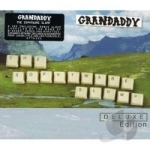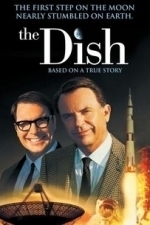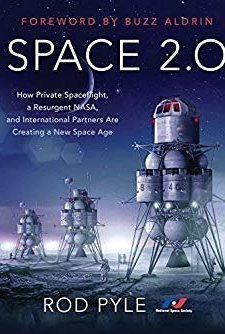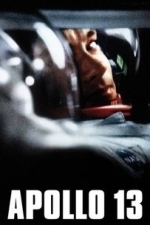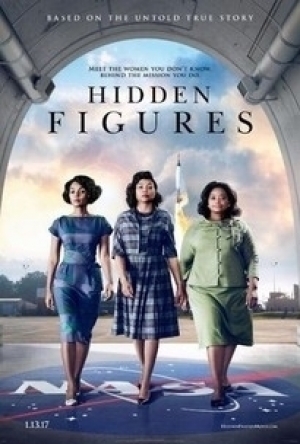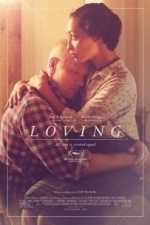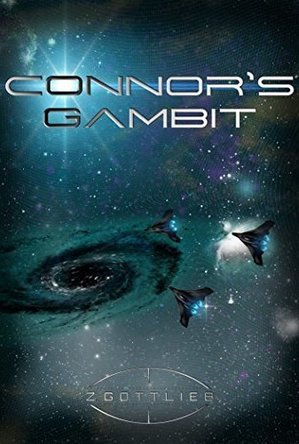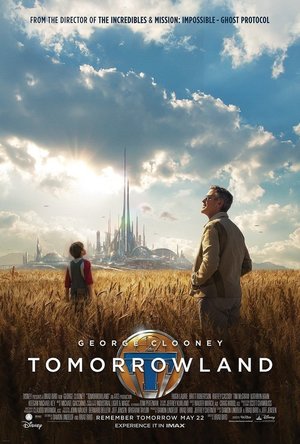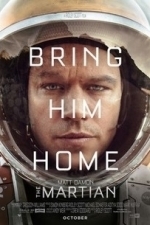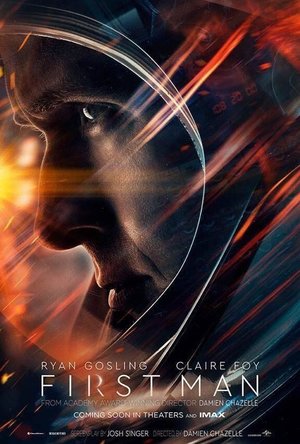Search
Search results
Jonathan Higgs recommended track He's Simple, He's Dumb, He's the Pilot by Grandaddy in Sophtware Slump by Grandaddy in Music (curated)
Darren (1599 KP) rated The Dish (2001) in Movies
Sep 16, 2019
Characters – Cliff Buxton is the director of the facility, he remains calm for the additional pressure placed on him by this mission, he knows how to welcome a new member to the team and keep his loyal team showing the respect required, Cliff has been through his own personal tragedy which has given him extra motivation to be part of this moment in history. Mitch is the senior member of the team in Australia, he has worked with Cliff for years now and doesn’t take too keenly to Al, he must learn to accept his own mistakes and that everyone involved wants the same thing. Glenn is the youngest member of the team, he is nervous person in life and has a side story of whether he will ask a local woman out. Al is the representative from NASA, he is very much by the book figure and this does cause tension in places because he isn’t as laid back as the rest of the team, even though he does have the utmost respect for the team.
Performances – Sam Neill is brilliant in this film, he has always been one of the actors that can portray knowledge with ease and will always be engaging. Kevin Harrington, Tom Long and Patrick Warburton are all wonderful to watch, showing great chemistry throughout the film.
Story – The story here follows the small team of satellite team in Australia that have been selected to be the link in communication for NASA for the Apollo 11 mission to be the first man to walk on the moon, we see how they team had to overcome their own problems to make sure they are part of history. When it comes to the moon mission, it has to go down as one of the biggest moments in human history and over the years we have seen many stories about the people involved in making this moment in history happen. By seeing how a small crew has operated to make this event visible for the world is entertaining. Seeing how things didn’t go to plan shows how they had to show their skills to adapt to the situation is interesting and the side story of the Mayor seeing how proud he is to be selected for this. This is a complete story that shows us just how wonderful this event was for the people involved.
Comedy/History – The comedy involved in the film shows us just how the crew can make the events fee light-hearted with what happens, showing us how they can feel like they are can operate best with the laidback nature. This does circle around one of the biggest events in human history.
Settings – The film uses a couple of main locations, first and most importantly is the dish which shows how contained the operation was and how the town came together to be remembered in history.
Scene of the Movie – Rudy the security guard, he gets so many laughs it is brilliant.
That Moment That Annoyed Me – Nothing about this film.
Final Thoughts – This is easily one of the most underrated movies involving the moon landing, it is one that is easy to enjoy with laughs and historical moments blend effortlessly.
Overall: Wonderful drama.
Performances – Sam Neill is brilliant in this film, he has always been one of the actors that can portray knowledge with ease and will always be engaging. Kevin Harrington, Tom Long and Patrick Warburton are all wonderful to watch, showing great chemistry throughout the film.
Story – The story here follows the small team of satellite team in Australia that have been selected to be the link in communication for NASA for the Apollo 11 mission to be the first man to walk on the moon, we see how they team had to overcome their own problems to make sure they are part of history. When it comes to the moon mission, it has to go down as one of the biggest moments in human history and over the years we have seen many stories about the people involved in making this moment in history happen. By seeing how a small crew has operated to make this event visible for the world is entertaining. Seeing how things didn’t go to plan shows how they had to show their skills to adapt to the situation is interesting and the side story of the Mayor seeing how proud he is to be selected for this. This is a complete story that shows us just how wonderful this event was for the people involved.
Comedy/History – The comedy involved in the film shows us just how the crew can make the events fee light-hearted with what happens, showing us how they can feel like they are can operate best with the laidback nature. This does circle around one of the biggest events in human history.
Settings – The film uses a couple of main locations, first and most importantly is the dish which shows how contained the operation was and how the town came together to be remembered in history.
Scene of the Movie – Rudy the security guard, he gets so many laughs it is brilliant.
That Moment That Annoyed Me – Nothing about this film.
Final Thoughts – This is easily one of the most underrated movies involving the moon landing, it is one that is easy to enjoy with laughs and historical moments blend effortlessly.
Overall: Wonderful drama.
Jessi Bone (48 KP) rated Space 2.0 in Books
Mar 28, 2019
To The Moon and Beyond
“When something is important enough, you do it even if the odds are not in your favor” Elon Musk Founder of Space X
Rod Pyle takes us on a journey to space in his new book Space 2.0. Mr. Pyle does not only look at where we have been on our journey to space but also to where we are going as both governmental and independent agency look to the sky for the future and protection of planet earth. The photographs and digital graphs are a bonus sharing with us visual examples of today and yesterday in the space program and allow us visual interpretations of what he is sharing. If you are looking for a light read on astronomy this is not the book for you. This book was meant to inform not to entertain even though it is full of information it is written in a way that you will enjoy the reading if you enjoy science and space exploration. This book is a wonderful resource for anyone looking to expand their there knowledge of the exploration to space and where we are going to be exploring next with the space program. I would recommend this book for all ages and it would be an informative reference for all ages whether you are homeschooling, college age or adults in the field or just a child wanting to know more about space exploration. Mr. Pyle goes beyond the norm in this book and covers more than just NASA and US Space program he gives us an overcast of all the programs out there now and in the past.
Rod Pyle takes us on a journey to space in his new book Space 2.0. Mr. Pyle does not only look at where we have been on our journey to space but also to where we are going as both governmental and independent agency look to the sky for the future and protection of planet earth. The photographs and digital graphs are a bonus sharing with us visual examples of today and yesterday in the space program and allow us visual interpretations of what he is sharing. If you are looking for a light read on astronomy this is not the book for you. This book was meant to inform not to entertain even though it is full of information it is written in a way that you will enjoy the reading if you enjoy science and space exploration. This book is a wonderful resource for anyone looking to expand their there knowledge of the exploration to space and where we are going to be exploring next with the space program. I would recommend this book for all ages and it would be an informative reference for all ages whether you are homeschooling, college age or adults in the field or just a child wanting to know more about space exploration. Mr. Pyle goes beyond the norm in this book and covers more than just NASA and US Space program he gives us an overcast of all the programs out there now and in the past.
Mayhawke (97 KP) rated Apollo 13 (1995) in Movies
Feb 7, 2018
On a scale of 1 - 5 this film is an easy 6
No matter how many times I see this film (and I have seen it quite a few times by now) I never fail to be moved by the amazing story being told and the excellence of Ron Howard's film-making.
The staggeringly good cast centres about Hanks, Bacon, Sinise, Paxton and Harris. Never once do any of these disappoint in their performance.
Their spot-on delivery of such simple yet evocative lines as: 'We just lost the moon' and 'I prefer to think of this as our finest hour' presenta wealth of emotions, whilst underscoring the strength and resilience of the human character; at the same time and with equal simplicity 'Christopher Columbus, Charles Lindberg and Alan Armstrong!' expresses one ordinary man's amazement at his friend's new-found place in the history books. The simple efficiency of the writing in this script has resulted in one of the best screenplays Hollywood has ever produced. The first-class direction and acting have ensured a powerful and convincing transfer from paper to celluloid.
Although this is not a 'Special Effects' film, there are a considerable number of effects in the film. Downplayed and used as such effects truly should be (as a technical enhancement to, rather than the object of the film) they convincingly and chillingly impart the sense of isolation felt by the Astronauts.
This 'aloneness'; their captivity in a the tiny LEM; the lack of action available to them is succinctly counter-balanced by the numerous ground crew, unfettered in thier movements as they rush round NASA desperatly, and with unending ingenuity, trying to solve one problem after another before time, power and oxygen run out for the three men in space.
The staggeringly good cast centres about Hanks, Bacon, Sinise, Paxton and Harris. Never once do any of these disappoint in their performance.
Their spot-on delivery of such simple yet evocative lines as: 'We just lost the moon' and 'I prefer to think of this as our finest hour' presenta wealth of emotions, whilst underscoring the strength and resilience of the human character; at the same time and with equal simplicity 'Christopher Columbus, Charles Lindberg and Alan Armstrong!' expresses one ordinary man's amazement at his friend's new-found place in the history books. The simple efficiency of the writing in this script has resulted in one of the best screenplays Hollywood has ever produced. The first-class direction and acting have ensured a powerful and convincing transfer from paper to celluloid.
Although this is not a 'Special Effects' film, there are a considerable number of effects in the film. Downplayed and used as such effects truly should be (as a technical enhancement to, rather than the object of the film) they convincingly and chillingly impart the sense of isolation felt by the Astronauts.
This 'aloneness'; their captivity in a the tiny LEM; the lack of action available to them is succinctly counter-balanced by the numerous ground crew, unfettered in thier movements as they rush round NASA desperatly, and with unending ingenuity, trying to solve one problem after another before time, power and oxygen run out for the three men in space.
Gareth von Kallenbach (965 KP) rated Hidden Figures (2016) in Movies
Jul 12, 2019
Teaching courses on history and the relevance of film capturing historical periods, people, and themes offers me a little greater perspective when watching historically based films. I think about how much I should criticize the film based on the ways that the truths are stretched in order to placate their audiences so that they don’t feel to uncomfortable with the subject matter. Hidden Figures offers up a chance to expose American audiences to a period and historical figures that helped impact American history and allow successful space flight.
Hidden Figures discusses the contributions of African-American women at NASA — Katherine Johnson (Taraji P. Henson), Dorothy Vaughan (Octavia Spencer) and Mary Jackson (Janelle Monáe). The film is enlightening and allows for audiences to gain a greater understanding of women and women of color in ensuring the success of the American Space program. The film does not exaggerate circumstances to a point where it is difficult to believe. What is difficult to believe for audiences in using this film to look at the past is that we have waited so long to recognize and honor these heroes. Without their contributions, the United States may have never made it to the moon.
The film offers adults and youth audiences an honest look into what these women faced in the forms of racism and sexism. There is no brutality of racism or violence demonstrated, but the spectre of it lingers over the film and reminds the viewer of the hardships that these women faced. They had the minds to carry out their tasks, but they did not have the right gender or color to be taken seriously, at first. The film is empowering and allows for young girls, despite race, to see that science and math are not fields that are not limited to men. Appropriate representation allows for more depth to history and the role that people of different walks, faiths, and nationalities have played in society. Hidden Figures is a timely film that allows for greater representation and may push filmmakers and audiences to discover more hidden figures in history.
Hidden Figures discusses the contributions of African-American women at NASA — Katherine Johnson (Taraji P. Henson), Dorothy Vaughan (Octavia Spencer) and Mary Jackson (Janelle Monáe). The film is enlightening and allows for audiences to gain a greater understanding of women and women of color in ensuring the success of the American Space program. The film does not exaggerate circumstances to a point where it is difficult to believe. What is difficult to believe for audiences in using this film to look at the past is that we have waited so long to recognize and honor these heroes. Without their contributions, the United States may have never made it to the moon.
The film offers adults and youth audiences an honest look into what these women faced in the forms of racism and sexism. There is no brutality of racism or violence demonstrated, but the spectre of it lingers over the film and reminds the viewer of the hardships that these women faced. They had the minds to carry out their tasks, but they did not have the right gender or color to be taken seriously, at first. The film is empowering and allows for young girls, despite race, to see that science and math are not fields that are not limited to men. Appropriate representation allows for more depth to history and the role that people of different walks, faiths, and nationalities have played in society. Hidden Figures is a timely film that allows for greater representation and may push filmmakers and audiences to discover more hidden figures in history.
Bob Mann (459 KP) rated Loving (2016) in Movies
Sep 29, 2021
Hidden Vigour: Negga excels in another glimpse into America’s racist past.
A few weeks ago when I reviewed “Hidden Figures” I pointed out the how absurd the racist behaviour at NASA in the 60’s must have appeared to a young boy in the audience at my screening. In many ways, “Loving” – a film that has had a lot less publicity and is a less obvious ‘crowd-pleaser’ – makes a useful companion piece to that film.
It tells the true story (yes, yet ANOTHER ‘true story’!) of Richard and Mildred Loving who travelled from their home town of Central Point Virginia to Washington DC where – as a mixed race couple – they could legally get married.
However, on returning to their home state and living together as man and wife, they fell foul of the State’s repulsive antimiscegenation statute which banned inter-racial marriages. The Lovings were found guilty and sentenced to a year in jail, which was suspended on the requirement that – unbelievable but true – the couple leave Virginia and not return (together) for 25 years. The film documents the fight of the couple – largely led by the feisty Mildred (Ruth Negga) – to fight the injustice, taking the case ultimately to the US Supreme Court for an historic ruling.
This was an Oscar-nominated performance by Ruth Negga and, man, is it deserved. It’s a performance of such quiet understated power that it is a joy to watch. But also strong is that of Joel Edgerton (“Midnight Special“, “The Great Gatsby“) as Richard who here adopts a largely sulky and subservient manner that contrasts beautifully with Negga’s perky optimism.
I also loved the performance of Marton Csokas (Celeborn from “The Lord of the Rings”), chillingly unreasonable as the bigoted Sheriff Brooks and Michael Shannon (“Nocturnal Animals“, “Midnight Special“) as the Time photographer Grey Villet, capturing a classic picture that is shown (in standard ‘true story’ fashion) at the end of the film (and below).
Written and directed by Jeff Nichols, whose “Midnight Special” last year made my top 10 of the year, this is a thoughtful and educational piece that should particularly appeal to older viewers keen to see a drama of historical importance beautifully told.
It tells the true story (yes, yet ANOTHER ‘true story’!) of Richard and Mildred Loving who travelled from their home town of Central Point Virginia to Washington DC where – as a mixed race couple – they could legally get married.
However, on returning to their home state and living together as man and wife, they fell foul of the State’s repulsive antimiscegenation statute which banned inter-racial marriages. The Lovings were found guilty and sentenced to a year in jail, which was suspended on the requirement that – unbelievable but true – the couple leave Virginia and not return (together) for 25 years. The film documents the fight of the couple – largely led by the feisty Mildred (Ruth Negga) – to fight the injustice, taking the case ultimately to the US Supreme Court for an historic ruling.
This was an Oscar-nominated performance by Ruth Negga and, man, is it deserved. It’s a performance of such quiet understated power that it is a joy to watch. But also strong is that of Joel Edgerton (“Midnight Special“, “The Great Gatsby“) as Richard who here adopts a largely sulky and subservient manner that contrasts beautifully with Negga’s perky optimism.
I also loved the performance of Marton Csokas (Celeborn from “The Lord of the Rings”), chillingly unreasonable as the bigoted Sheriff Brooks and Michael Shannon (“Nocturnal Animals“, “Midnight Special“) as the Time photographer Grey Villet, capturing a classic picture that is shown (in standard ‘true story’ fashion) at the end of the film (and below).
Written and directed by Jeff Nichols, whose “Midnight Special” last year made my top 10 of the year, this is a thoughtful and educational piece that should particularly appeal to older viewers keen to see a drama of historical importance beautifully told.
Sassy Brit (97 KP) rated Connor's Gambit in Books
Jun 5, 2019
Connor’s Gambit by Z. Gottlieb is the first book I’ve received to review that’s in audible format, so this is quite a new experience for me, just like it’s the lead character Brad Johnson’s first adventure with aliens. And what a trip this is!
After Brad sees an alien spaceship and it seems no one else did, he begins to doubt his sanity. But when his suspicions are confirmed and his wife, Shinny, reveals who and what she really is, his life not only changes forever, but so does everything he thought he knew about his life and the universe which surrounds him — aliens do exist — he should know, he’s married to one! And, boy, does the plot thicken after that.
In Z. Gottlieb’s fun world there were times that the space technology seemed so realistic I was wondering if the author had some sort of NASA experience. From alien creature descriptions, their lifestyles and their amazing high-tech technology, to Brad’s awakening and newfound belief in UFOs, and his acceptance to jump right in and help, whilst learning on the job; this book has a lot to offer any self-respecting science fiction fan and space cadet!
A few of my favourite things? There’s so many to choose from. I loved Brad (obviously!). Then there’s the scary Neslins, the Aneplè, the battle cruiser Zuonopy and all its features and Brad and Shinny’s son, Dane with his talking dragon Yeshawliq. I need a talking dragon, can you make one out of a 3D printer for me please?
The narrator’s voice was different to what I expected at first, however, Charlie Thurston pulled me into the action and kept me hooked right through to the satisfying end, which is slightly left open for more, whilst at the same time it’s also a fully completed standalone story with major plot threads all tied up nicely. I’m so pleased to have discovered Z. Gottleib’s space world and I cannot wait to read or even listen to the next instalment. I’m sure it will definitely be worth the wait!
Z. Gottlieb has captured the essence of space travel, alien life and the rules of their universe spectacularly. I really enjoy my time (all 13 hours of it) listening to this space opera, and the fact that I was listening (instead of reading) really made me feel like I was there, thrown in deep with the characters and their stories, part of their crew!
After Brad sees an alien spaceship and it seems no one else did, he begins to doubt his sanity. But when his suspicions are confirmed and his wife, Shinny, reveals who and what she really is, his life not only changes forever, but so does everything he thought he knew about his life and the universe which surrounds him — aliens do exist — he should know, he’s married to one! And, boy, does the plot thicken after that.
In Z. Gottlieb’s fun world there were times that the space technology seemed so realistic I was wondering if the author had some sort of NASA experience. From alien creature descriptions, their lifestyles and their amazing high-tech technology, to Brad’s awakening and newfound belief in UFOs, and his acceptance to jump right in and help, whilst learning on the job; this book has a lot to offer any self-respecting science fiction fan and space cadet!
A few of my favourite things? There’s so many to choose from. I loved Brad (obviously!). Then there’s the scary Neslins, the Aneplè, the battle cruiser Zuonopy and all its features and Brad and Shinny’s son, Dane with his talking dragon Yeshawliq. I need a talking dragon, can you make one out of a 3D printer for me please?
The narrator’s voice was different to what I expected at first, however, Charlie Thurston pulled me into the action and kept me hooked right through to the satisfying end, which is slightly left open for more, whilst at the same time it’s also a fully completed standalone story with major plot threads all tied up nicely. I’m so pleased to have discovered Z. Gottleib’s space world and I cannot wait to read or even listen to the next instalment. I’m sure it will definitely be worth the wait!
Z. Gottlieb has captured the essence of space travel, alien life and the rules of their universe spectacularly. I really enjoy my time (all 13 hours of it) listening to this space opera, and the fact that I was listening (instead of reading) really made me feel like I was there, thrown in deep with the characters and their stories, part of their crew!
Gareth von Kallenbach (965 KP) rated Tomorrowland (2015) in Movies
Aug 6, 2019
I have to be honest. I was confused when I first heard that a movie was being made called Tomorrowland, and even more so when I heard it that actually is based on the themed area of Disney parks. How could they do it? What would it be about? It was strange. The teaser trailer didn’t give a whole lot away either (as teasers are designed to do). When I saw the full trailer, I had a little more understanding, and it definitely piqued my interest, but I was still totally in the dark. And I wanted to see the movie! I guess Disney really did their job right.
In this film, Tomorrowland is a place of unlimited possibilities. Another dimension, where the inhabitants of that dimension actively seek out intelligent people, inventors, who can do something that can change the world for the better. We begin at the 1964 World Fair in New York where we see a young Frank Walker (Thomas Robinson) entering into the inventor’s competition with a jetpack that doesn’t quite work. However, a mysterious young woman named Athena (Raffey Cassidy) takes an interest in him, offers him a pin and instructs him to follow her. Thus begins Frank’s adventure and we move forward in time to the present day, where we meet Casey Newton (Britt Robertson).
Casey is the teenage daughter of a NASA engineer, who is no slough in the intelligence department herself. We are introduced to her as she is sabotaging equipment at a NASA launch pad that is scheduled to be taken down, which will leave her father without a job. We see Athena again, who has mysteriously not aged, leaving a pin for Casey to discover Tomorrowland on her own. Only, this pin is a simple advertisement. We soon learn that something has gone terribly wrong, and our world is in danger. Athena leads Casey to an aged Frank Walker (George Clooney), who has since been banished from Tomorrowland, but still feeds off of their signal and sits and waits for the end of the world, which he knows when it will happen. But he and Athena see something in Casey that will help save both Tomorrowland, and our world.
Given the conversations, the imagery, and the theme of this movie, it is clearly targeted towards children more than adults. Though, there is plenty for an adult to enjoy about the movie, it is important to understand that the movie is clearly targeted to a younger audience. I say this because I feel, as did my guests who attended the press screening, that the main plot device, the main conflict of the movie, is far too complex a concept for this younger audience to understand. So before you read any further, spoiler alert. You have been forewarned. If you do not want to know, skip the next two paragraphs.
The idea here is that Frank Walker built a machine that could see any point in time. Past, future or present. With this machine, he saw the end of our world. The proposed resolution to stop the destruction of earth is this: turn off the machine. The argument being that the world ends because we see it ending. It becomes a fixation of our mind, and so it will happen. Apparently, the people of Tomorrowland have been streaming this information to Earth for years, but instead of taking steps to prevent it, Earth has embraced it. One of my favorite lines, delivered by one of my favorite actors (Hugh Laurie) indicated that we had simultaneous epidemics of obesity and starvation on Earth. It’s mind boggling. But the Casey comes up with the brilliant idea of turning it off, which will prevent the destruction of Earth because people will no longer be so focused on it. It’s a little more complicated than that, but this is the gist of it. Way too complex for your average child to comprehend.
Another part of the resolution and the end of the movie was brilliant, but I think it was poorly illustrated. As I mentioned earlier, the residents of Tomorrowland were searching for intelligent people, often high IQ inventors, who could make the world a better place. At the end of the film, Casey idea is to bring not only intelligent people, but anyone who will make a difference. Dancers, musicians, doctors, pilots, farmers, etc. I think I even saw a waitress in there. These are people who may not normally be recognized as highly intelligent, but can make huge differences in the world. The idea was to not be so limited in thinking, and understand how everything can contribute to a better world. However, they did not really do a great job of pointing this out, so some movie-goers may miss this point completely and simply see it as a rebuilding of Tomorrowland to its former glory.
Other than those two issues, I thoroughly enjoyed the movie. It had a great amount of humor, action and endearing moments. It was visually stunning, and took a concept that I never thought could be made into a movie and did just that. The movie was brilliantly cast, even down to the minor characters like Hugo (Keegan-Michael Key) and Ursula (Kathryn Hahn). Of course the score was fantastic, it is a Disney film after all. And despite my issues with the complexity of the plot, I still think that everyone, young and old, will enjoy this film.
Is it perfect? Absolutely not. But it is entertaining, and definitely worth seeing on the big screen. So go check it out. In theaters everywhere, today.
In this film, Tomorrowland is a place of unlimited possibilities. Another dimension, where the inhabitants of that dimension actively seek out intelligent people, inventors, who can do something that can change the world for the better. We begin at the 1964 World Fair in New York where we see a young Frank Walker (Thomas Robinson) entering into the inventor’s competition with a jetpack that doesn’t quite work. However, a mysterious young woman named Athena (Raffey Cassidy) takes an interest in him, offers him a pin and instructs him to follow her. Thus begins Frank’s adventure and we move forward in time to the present day, where we meet Casey Newton (Britt Robertson).
Casey is the teenage daughter of a NASA engineer, who is no slough in the intelligence department herself. We are introduced to her as she is sabotaging equipment at a NASA launch pad that is scheduled to be taken down, which will leave her father without a job. We see Athena again, who has mysteriously not aged, leaving a pin for Casey to discover Tomorrowland on her own. Only, this pin is a simple advertisement. We soon learn that something has gone terribly wrong, and our world is in danger. Athena leads Casey to an aged Frank Walker (George Clooney), who has since been banished from Tomorrowland, but still feeds off of their signal and sits and waits for the end of the world, which he knows when it will happen. But he and Athena see something in Casey that will help save both Tomorrowland, and our world.
Given the conversations, the imagery, and the theme of this movie, it is clearly targeted towards children more than adults. Though, there is plenty for an adult to enjoy about the movie, it is important to understand that the movie is clearly targeted to a younger audience. I say this because I feel, as did my guests who attended the press screening, that the main plot device, the main conflict of the movie, is far too complex a concept for this younger audience to understand. So before you read any further, spoiler alert. You have been forewarned. If you do not want to know, skip the next two paragraphs.
The idea here is that Frank Walker built a machine that could see any point in time. Past, future or present. With this machine, he saw the end of our world. The proposed resolution to stop the destruction of earth is this: turn off the machine. The argument being that the world ends because we see it ending. It becomes a fixation of our mind, and so it will happen. Apparently, the people of Tomorrowland have been streaming this information to Earth for years, but instead of taking steps to prevent it, Earth has embraced it. One of my favorite lines, delivered by one of my favorite actors (Hugh Laurie) indicated that we had simultaneous epidemics of obesity and starvation on Earth. It’s mind boggling. But the Casey comes up with the brilliant idea of turning it off, which will prevent the destruction of Earth because people will no longer be so focused on it. It’s a little more complicated than that, but this is the gist of it. Way too complex for your average child to comprehend.
Another part of the resolution and the end of the movie was brilliant, but I think it was poorly illustrated. As I mentioned earlier, the residents of Tomorrowland were searching for intelligent people, often high IQ inventors, who could make the world a better place. At the end of the film, Casey idea is to bring not only intelligent people, but anyone who will make a difference. Dancers, musicians, doctors, pilots, farmers, etc. I think I even saw a waitress in there. These are people who may not normally be recognized as highly intelligent, but can make huge differences in the world. The idea was to not be so limited in thinking, and understand how everything can contribute to a better world. However, they did not really do a great job of pointing this out, so some movie-goers may miss this point completely and simply see it as a rebuilding of Tomorrowland to its former glory.
Other than those two issues, I thoroughly enjoyed the movie. It had a great amount of humor, action and endearing moments. It was visually stunning, and took a concept that I never thought could be made into a movie and did just that. The movie was brilliantly cast, even down to the minor characters like Hugo (Keegan-Michael Key) and Ursula (Kathryn Hahn). Of course the score was fantastic, it is a Disney film after all. And despite my issues with the complexity of the plot, I still think that everyone, young and old, will enjoy this film.
Is it perfect? Absolutely not. But it is entertaining, and definitely worth seeing on the big screen. So go check it out. In theaters everywhere, today.
Movie Metropolis (309 KP) rated The Martian (2015) in Movies
Jun 11, 2019
Ridley Scott's best film since Alien
It’s safe to say that Ridley Scott knows his way around a camera. From Alien to Gladiator, the director has brought to the silver screen some of the greatest films of all time, heck even Prometheus wasn’t that bad in a muddled kind of way.
Now, after the underwhelming Exodus: Gods & Kings, Scott returns to the director’s chair doing what he does best, sci-fi. But is The Martian as good as his earlier works?
Thankfully, the answer is yes and The Martian proves how good the director can be when he’s given the right material to work with. Andy Weir’s 2011 novel of the same name lends a good starting point and Scott ends up with his best film since 1979’s masterpiece, Alien – that’s no joke.
Matt Damon stars as Mark Wateny, an astronaut and botanist left stranded on Mars after a mission goes horribly wrong. After being left behind by his colleagues, played by talent including Jessica Chastain (The Hurt Locker) and Kate Mara (Fantastic Four), Mark must find a way to survive on the red planet until a rescue operation can reach him – years later.
Sean Bean, Kristen Wiig, Donald Glover and Jeff Daniels also star as NASA directors, scientists and astrophysicists. Despite their limited screen time, each brings something to the table with a spirited performance.
Scott directs The Martian with a huge amount of confidence, clearly helped by his time on Alien and Prometheus, and his cinematography is absolute perfection. Never has Mars looked this good on film. The desolate, arid landscape is breath-taking and the numerous aerial shots that feature Damon’s character only add to the emptiness.
The special effects too are wonderful. CGI is mixed with amazing practical props that integrate so well together that it’s impossible to tell the difference. The numerous spacecraft, living quarters and vehicles all feel so real and continue to add more credibility to The Martian’s cause.
Damon is also second-to-none and over the course of the film develops new personality traits, all due to the intense stress of being stranded 50 million miles away from Earth. The film lives and dies on his efforts and thankfully, the ever-reliable actor gives one of his best performances in years.
Unfortunately, Jessica Chastain doesn’t have too much to do until the finale and feels a little side-lined – she has won an Oscar after all, though Damon’s magnetic presence is enough to forgive some of the shortcomings in other characters.
The script is, on the whole, very good indeed. Despite only featuring one character for the majority of its 140 minute run-time, The Martian is funny, witty and helped by a fantastic disco soundtrack that has hits from the likes of ABBA dotted about.
Overall, The Martian is sci-fi film-making at its peak. Ridley Scott has crafted a beautiful looking and deeply involving film that features the very best in special effects and scientific accuracy. With Matt Damon’s dry humour and emotional depth, it’s a winner all round.
https://moviemetropolis.net/2015/10/04/ridley-scotts-best-film-since-alien-the-martian-review/
Now, after the underwhelming Exodus: Gods & Kings, Scott returns to the director’s chair doing what he does best, sci-fi. But is The Martian as good as his earlier works?
Thankfully, the answer is yes and The Martian proves how good the director can be when he’s given the right material to work with. Andy Weir’s 2011 novel of the same name lends a good starting point and Scott ends up with his best film since 1979’s masterpiece, Alien – that’s no joke.
Matt Damon stars as Mark Wateny, an astronaut and botanist left stranded on Mars after a mission goes horribly wrong. After being left behind by his colleagues, played by talent including Jessica Chastain (The Hurt Locker) and Kate Mara (Fantastic Four), Mark must find a way to survive on the red planet until a rescue operation can reach him – years later.
Sean Bean, Kristen Wiig, Donald Glover and Jeff Daniels also star as NASA directors, scientists and astrophysicists. Despite their limited screen time, each brings something to the table with a spirited performance.
Scott directs The Martian with a huge amount of confidence, clearly helped by his time on Alien and Prometheus, and his cinematography is absolute perfection. Never has Mars looked this good on film. The desolate, arid landscape is breath-taking and the numerous aerial shots that feature Damon’s character only add to the emptiness.
The special effects too are wonderful. CGI is mixed with amazing practical props that integrate so well together that it’s impossible to tell the difference. The numerous spacecraft, living quarters and vehicles all feel so real and continue to add more credibility to The Martian’s cause.
Damon is also second-to-none and over the course of the film develops new personality traits, all due to the intense stress of being stranded 50 million miles away from Earth. The film lives and dies on his efforts and thankfully, the ever-reliable actor gives one of his best performances in years.
Unfortunately, Jessica Chastain doesn’t have too much to do until the finale and feels a little side-lined – she has won an Oscar after all, though Damon’s magnetic presence is enough to forgive some of the shortcomings in other characters.
The script is, on the whole, very good indeed. Despite only featuring one character for the majority of its 140 minute run-time, The Martian is funny, witty and helped by a fantastic disco soundtrack that has hits from the likes of ABBA dotted about.
Overall, The Martian is sci-fi film-making at its peak. Ridley Scott has crafted a beautiful looking and deeply involving film that features the very best in special effects and scientific accuracy. With Matt Damon’s dry humour and emotional depth, it’s a winner all round.
https://moviemetropolis.net/2015/10/04/ridley-scotts-best-film-since-alien-the-martian-review/
Bob Mann (459 KP) rated First Man (2018) in Movies
Sep 28, 2021
He captured a feeling. Sky with no ceiling.
A memorable event
I am a child of the 60’s, born in 1961. The “Space Race” for me was not some historical concept but a pervasive backdrop to my childhood. I still recall, at the age of 8, being marched into my junior school’s assembly hall. We all peered at the grainy black-and-white pictures of Neil Armstrong as he spoke his famously fluffed line before stepping onto the lunar surface. The event happened at 3:54am UK time, so clearly my recollection of “seeing it live” is bogus. (I read that the BBC stayed on air until 10:30 in the morning, so it was probably a ‘final review’ of the night’s events I saw). It is probably lodged in my memory less for the historical event and more due to the fact that there was TELEVISION ON IN THE MORNING! (Kids, ask your grandparents!)
A very personal connection. My personal copy of Waddington’s “Blast Off” board game, briefly shown in the film.
The plot
But back to Damien Chazelle‘s film. We start early in the 60’s with America getting well and truly kicked up the proberbial by the Russians in the space race: they fail to get the first man in space; they fail to carry out the first spacewalk. So the Americans, following the famous JFK speech, set their sights on the moon. It’s the equivalent of making a mess of cutting your toenails but then deciding to have a go at brain surgery. NASA develop the Gemini programme to practice the essential docking manoevers required as a precursor for the seemingly impossible (‘two blackboard’) mission that is Apollo.
But the price paid for such ambition is high.
Ryan Gosling plays Neil Armstrong as a dedicated, prickly, professional; altogether not a terribly likeable individual. Claire Foy plays his long-suffering wife Janet, putting her support for her husband’s dangerous profession ahead of her natural fears of becoming a single mother.
Review
There is obviously little tension to be mined from a film that has such a well-known historical context. Those with even a subliminal knowledge of the subject will be aware of the key triumphs and tragedies along the way. The script (by Josh Singer, “The Post“; “Spotlight“) is very well done in developing a creeping dread of knowing what is shortly to come.
Even with these inherent spoilers, Chazelle still manages to evoke armrest-squeezing tension into the space flight sequences. A lot of this is achieved through disorientating camera movements and flashing images that may irritate some but I found to be highly effective. (Did anyone else flash back to that excellent “Mission Space” ride at Epcot during the launch sequences?) This hand-held cinematography by Linus Sandgren (Chazelle’s “La La Land” collaborator) is matched by some utterly drop-dead gorgeous shots – beautifully framed; beautifully lit – that would be worthy of a Kaminski/Spielberg collaboration.
Those expecting a rollercoaster thrill-ride of the likes of “Apollo 13” will be disappointed. The film has more of the slow-and-long-burn feeling of “The Right Stuff” in mood and, at 141 minutes, some might even find it quite boring. There is significant time, for example, spent within the family home. These scenes include turbulent events of which I wasn’t previously aware: events that form the cornerstone of the film’s drama. For me, the balance of the personal and the historical background was perfectly done. I found it curious though that with such a family-oriented drama Chazelle chose to ditch completely any cuts away to the earthbound onlookers during the tense lunar landing sequence. (Compare and contrast with Ron Howard‘s masterly inter-cutting in the re-entry scene of “Apollo 13”). With the outcome foretold, perhaps such tension building was considered unnecessary? I’m not suggesting it was wrong to ‘stay in the moment’ with the astronauts, but it’s a bold directorial move.
Overall, the foolhardiness of NASA trying to do what they did with the 60’s technology at their disposal is well-portrayed. If you’ve been lucky enough, as I have, to view the Apollo 11 capsule in the National Air and Space museum in Washington you can’t help but be impressed by the bravery of Armstong, Aldrin and Collins in getting in that bucket of bolts and putting their lives on the line. True American heroes.
On that topic, the “flag issue” has generated much self-righteous heat within the US media; that is regarding Chazelle not showing the American flag being planted. This seems fatuous to me. Not only is the flag shown on the moon, but the film ably demonstrates the American know-how and bravery behind the mission. If Clint Eastwood had been directing he would have probably gone there: but for me it certainly didn’t need any further patriotism rubbed in the viewer’s face.
The turns
Are Oscar nominations on the cards for Ryan Gosling and Claire Foy? For me, it would be staggering if they are not: this film has “Oscar nomination” written all over it. I’d also certainly not bet against Foy winning for Best Actress: her portrayal of a wife on the edge is nothing short of brilliant. And perhaps, just perhaps, this might be Gosling’s year too.
Elsewhere there are strong supporting performances from Kyle Chandler (as Deke Slayton), Corey Stoll (as the ‘tell it how it is’ Buzz Aldrin) and Jason Clarke (as Ed White). It’s also great to see Belfast-born Ciarán Hinds in another mainstream Hollywood release.
For me, another dead cert Oscar nomination will be Justin Hurwitz for the score which is breathtakingly brilliant, not just in its compelling themes but also in its orchestration: the use of the eerie theremin and melodic harp are just brilliant together. I haven’t heard a score this year that’s more fitting to the visuals: although it’s early in the Oscar season to be calling it, I’d be very surprised if this didn’t walk away with the statuette.
Summary
Loved this. Damien Chazelle – with “Whiplash“, “La La Land” and now “First Man” – has hit all of three out of the park in my book. It’s not really a film for thrill-seekers, who might get bored, but anyone, like me, with an interest in the history of space exploration will I think lap it up: for this was surely the most memorable decade in space history… so far.
On leaving the cinema I looked up at the rising moon and marvelled once more at the audacity of man. My eyes then drifted across to the red dot that was Mars. How long I wonder? And how many dramatic film biographies still to come?
I am a child of the 60’s, born in 1961. The “Space Race” for me was not some historical concept but a pervasive backdrop to my childhood. I still recall, at the age of 8, being marched into my junior school’s assembly hall. We all peered at the grainy black-and-white pictures of Neil Armstrong as he spoke his famously fluffed line before stepping onto the lunar surface. The event happened at 3:54am UK time, so clearly my recollection of “seeing it live” is bogus. (I read that the BBC stayed on air until 10:30 in the morning, so it was probably a ‘final review’ of the night’s events I saw). It is probably lodged in my memory less for the historical event and more due to the fact that there was TELEVISION ON IN THE MORNING! (Kids, ask your grandparents!)
A very personal connection. My personal copy of Waddington’s “Blast Off” board game, briefly shown in the film.
The plot
But back to Damien Chazelle‘s film. We start early in the 60’s with America getting well and truly kicked up the proberbial by the Russians in the space race: they fail to get the first man in space; they fail to carry out the first spacewalk. So the Americans, following the famous JFK speech, set their sights on the moon. It’s the equivalent of making a mess of cutting your toenails but then deciding to have a go at brain surgery. NASA develop the Gemini programme to practice the essential docking manoevers required as a precursor for the seemingly impossible (‘two blackboard’) mission that is Apollo.
But the price paid for such ambition is high.
Ryan Gosling plays Neil Armstrong as a dedicated, prickly, professional; altogether not a terribly likeable individual. Claire Foy plays his long-suffering wife Janet, putting her support for her husband’s dangerous profession ahead of her natural fears of becoming a single mother.
Review
There is obviously little tension to be mined from a film that has such a well-known historical context. Those with even a subliminal knowledge of the subject will be aware of the key triumphs and tragedies along the way. The script (by Josh Singer, “The Post“; “Spotlight“) is very well done in developing a creeping dread of knowing what is shortly to come.
Even with these inherent spoilers, Chazelle still manages to evoke armrest-squeezing tension into the space flight sequences. A lot of this is achieved through disorientating camera movements and flashing images that may irritate some but I found to be highly effective. (Did anyone else flash back to that excellent “Mission Space” ride at Epcot during the launch sequences?) This hand-held cinematography by Linus Sandgren (Chazelle’s “La La Land” collaborator) is matched by some utterly drop-dead gorgeous shots – beautifully framed; beautifully lit – that would be worthy of a Kaminski/Spielberg collaboration.
Those expecting a rollercoaster thrill-ride of the likes of “Apollo 13” will be disappointed. The film has more of the slow-and-long-burn feeling of “The Right Stuff” in mood and, at 141 minutes, some might even find it quite boring. There is significant time, for example, spent within the family home. These scenes include turbulent events of which I wasn’t previously aware: events that form the cornerstone of the film’s drama. For me, the balance of the personal and the historical background was perfectly done. I found it curious though that with such a family-oriented drama Chazelle chose to ditch completely any cuts away to the earthbound onlookers during the tense lunar landing sequence. (Compare and contrast with Ron Howard‘s masterly inter-cutting in the re-entry scene of “Apollo 13”). With the outcome foretold, perhaps such tension building was considered unnecessary? I’m not suggesting it was wrong to ‘stay in the moment’ with the astronauts, but it’s a bold directorial move.
Overall, the foolhardiness of NASA trying to do what they did with the 60’s technology at their disposal is well-portrayed. If you’ve been lucky enough, as I have, to view the Apollo 11 capsule in the National Air and Space museum in Washington you can’t help but be impressed by the bravery of Armstong, Aldrin and Collins in getting in that bucket of bolts and putting their lives on the line. True American heroes.
On that topic, the “flag issue” has generated much self-righteous heat within the US media; that is regarding Chazelle not showing the American flag being planted. This seems fatuous to me. Not only is the flag shown on the moon, but the film ably demonstrates the American know-how and bravery behind the mission. If Clint Eastwood had been directing he would have probably gone there: but for me it certainly didn’t need any further patriotism rubbed in the viewer’s face.
The turns
Are Oscar nominations on the cards for Ryan Gosling and Claire Foy? For me, it would be staggering if they are not: this film has “Oscar nomination” written all over it. I’d also certainly not bet against Foy winning for Best Actress: her portrayal of a wife on the edge is nothing short of brilliant. And perhaps, just perhaps, this might be Gosling’s year too.
Elsewhere there are strong supporting performances from Kyle Chandler (as Deke Slayton), Corey Stoll (as the ‘tell it how it is’ Buzz Aldrin) and Jason Clarke (as Ed White). It’s also great to see Belfast-born Ciarán Hinds in another mainstream Hollywood release.
For me, another dead cert Oscar nomination will be Justin Hurwitz for the score which is breathtakingly brilliant, not just in its compelling themes but also in its orchestration: the use of the eerie theremin and melodic harp are just brilliant together. I haven’t heard a score this year that’s more fitting to the visuals: although it’s early in the Oscar season to be calling it, I’d be very surprised if this didn’t walk away with the statuette.
Summary
Loved this. Damien Chazelle – with “Whiplash“, “La La Land” and now “First Man” – has hit all of three out of the park in my book. It’s not really a film for thrill-seekers, who might get bored, but anyone, like me, with an interest in the history of space exploration will I think lap it up: for this was surely the most memorable decade in space history… so far.
On leaving the cinema I looked up at the rising moon and marvelled once more at the audacity of man. My eyes then drifted across to the red dot that was Mars. How long I wonder? And how many dramatic film biographies still to come?
